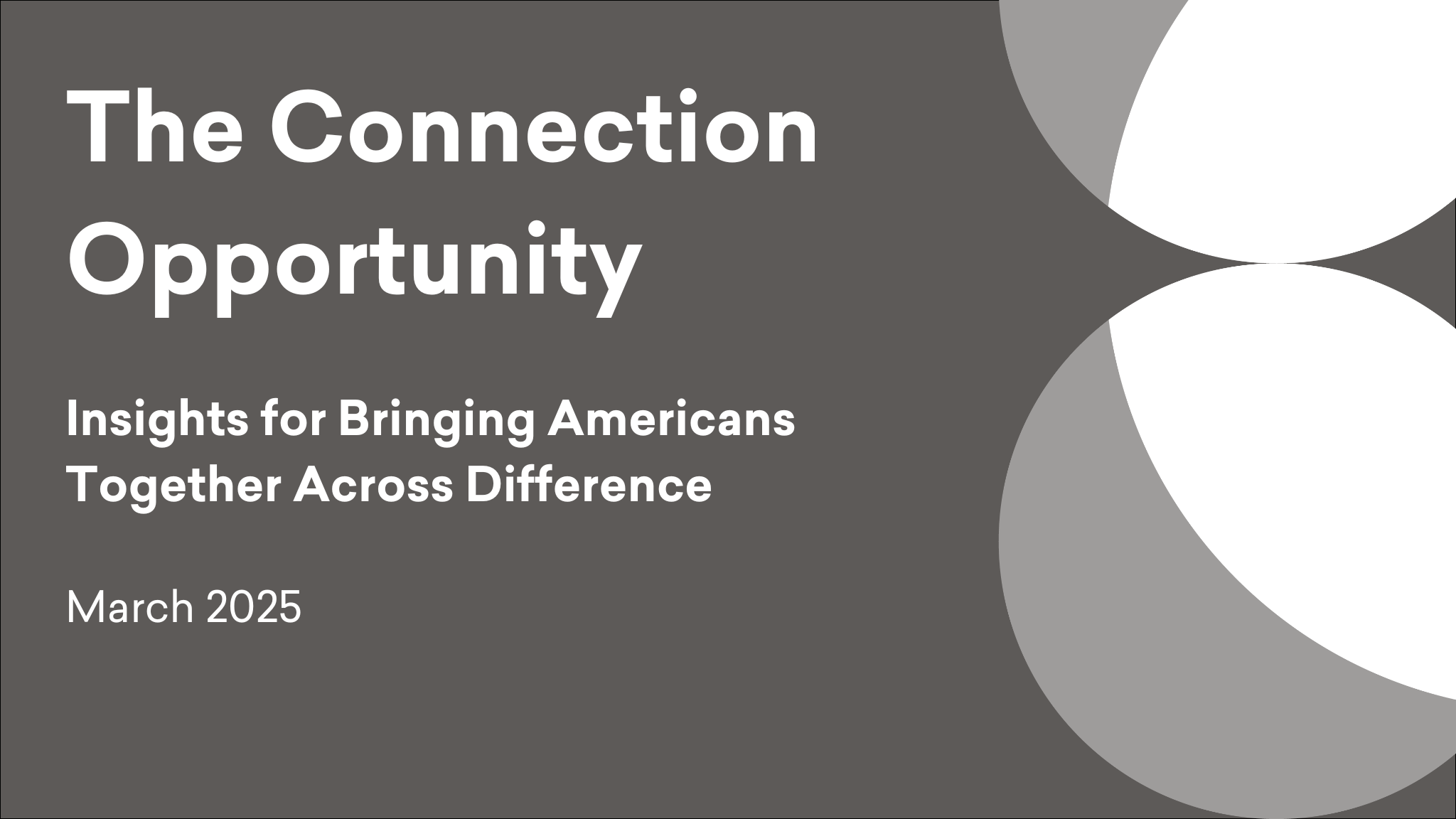
18 March 2025
What Americans feel, fear, and want to learn
June 27, 2025
Pluralism
Narrative & Communications
Social Connection
Trust
Do you think you are a good listener? If so, consider yourself in good company: according to More in Common’s research, nearly 8 in 10 Americans think they are “good at listening.”
Now: do you think other people are good at listening? If you have doubts, you’re also in the majority: according to our research, around two-thirds of Americans believe that “people aren’t as good a listening as they used to be.”
This discrepancy reveals an important gap between our self-assessment and perceived reality. While somewhat amusing, it also points towards an underlying problem: many Americans feel as though people aren’t listening well these days.
Not listening to each other has important consequences. Feeling unheard could contribute to the lack of connection and loneliness that afflict many. Our data show that it also relates to feeling belonging: about 40 percent of people who feel “excluded” in their local community think that “no one really listens to them” — twice the national average. Broadly, it’s also important for people to listen to each other so that we can work more productively together in a pluralistic society.
So, what does it mean to really listen well? And how can we encourage Americans to become better listeners?
More in Common explored these questions in partnership with BBC journalist, Emily Kasriel, who has pioneered a new method for high-quality listening. Our findings were incorporated into her book, Deep Listening: Transform Your Relationships with Family, Friends, and Foes, published June 2025.
Polling Firm: YouGov
Sample Size (US): N = 2,009 US adults
Fieldwork Dates: May 23 to June 11, 2024
Margin of Error: +/- 2.2 % for the US average and higher for subgroups.
The data were weighted to be representative according to gender/age interlocked, race, education level, region, and 2020 Presidential vote choice.
More in Common polled 133 participants from October 22 to November 3, 2023 on its “Americans in Conversation” online qualitative research panel, which is broadly representative of the American population.
of Americans think people “used to be better at listening.”
of Americans who feel “excluded” in their local community agree that “no one really listens” to them, twice the national average.
of Americans are at least moderately interested in taking an online listening course.
Explore the depth of our research at your fingertips. Get the complete insights by downloading the full report today.
What unites and divides Americans today? This newsletter takes a closer look at issues pressing on America’s social and political fabric and provides recommendations for how to strengthen ties to keep us bound together.